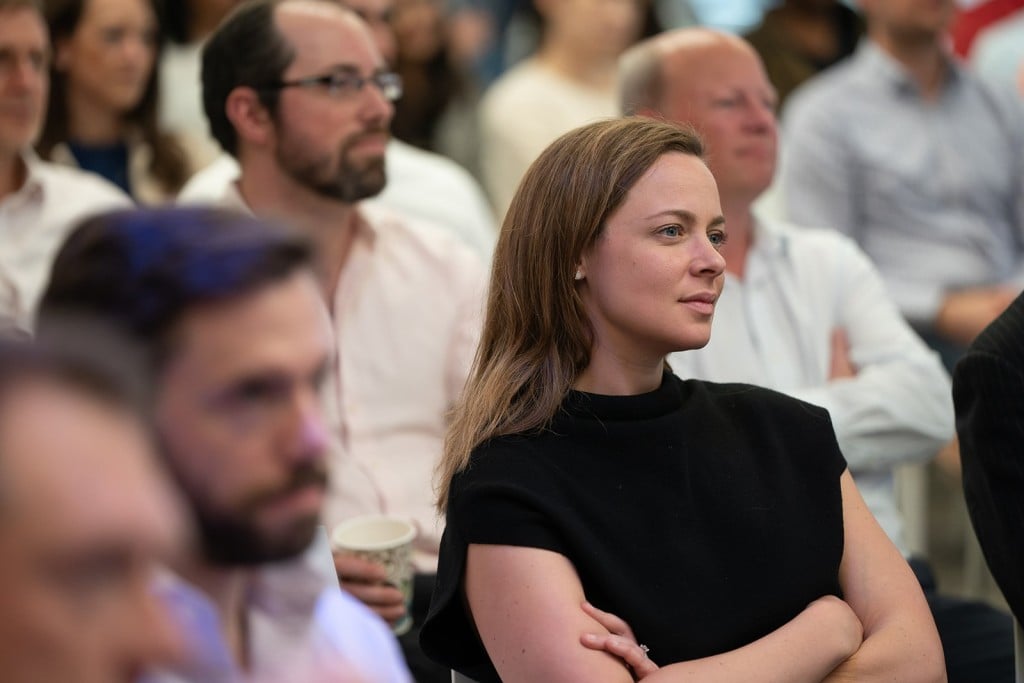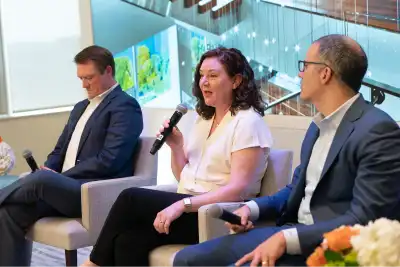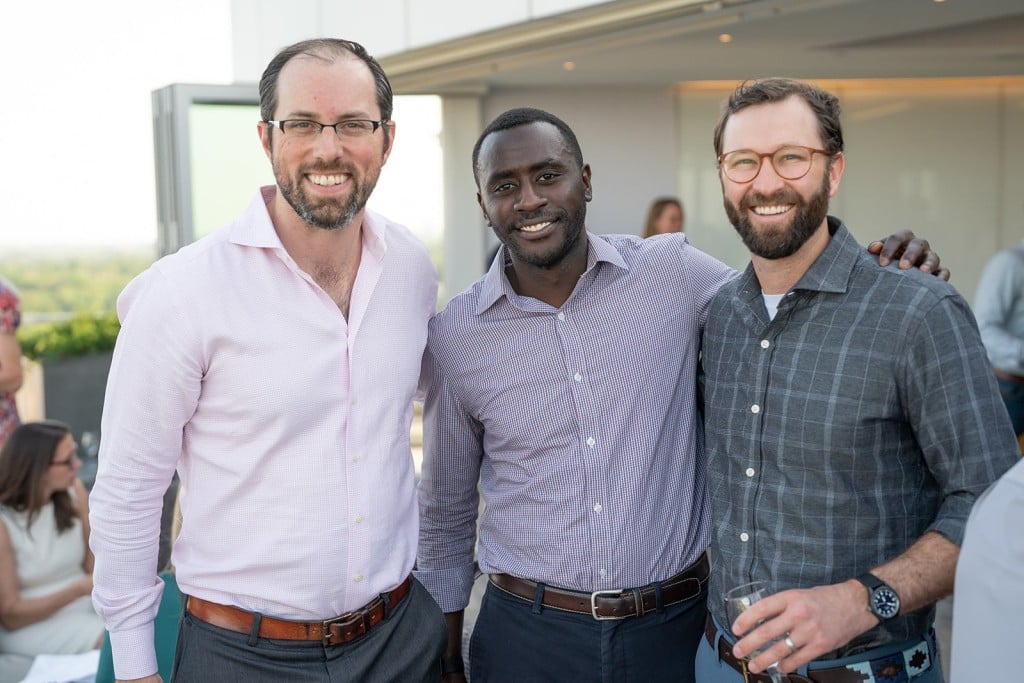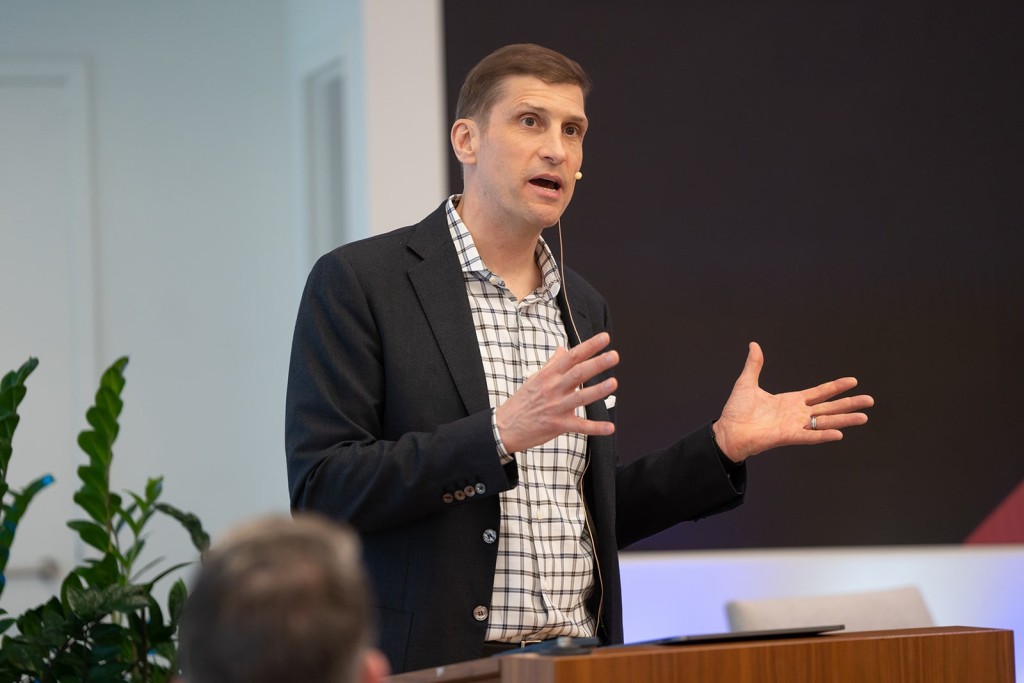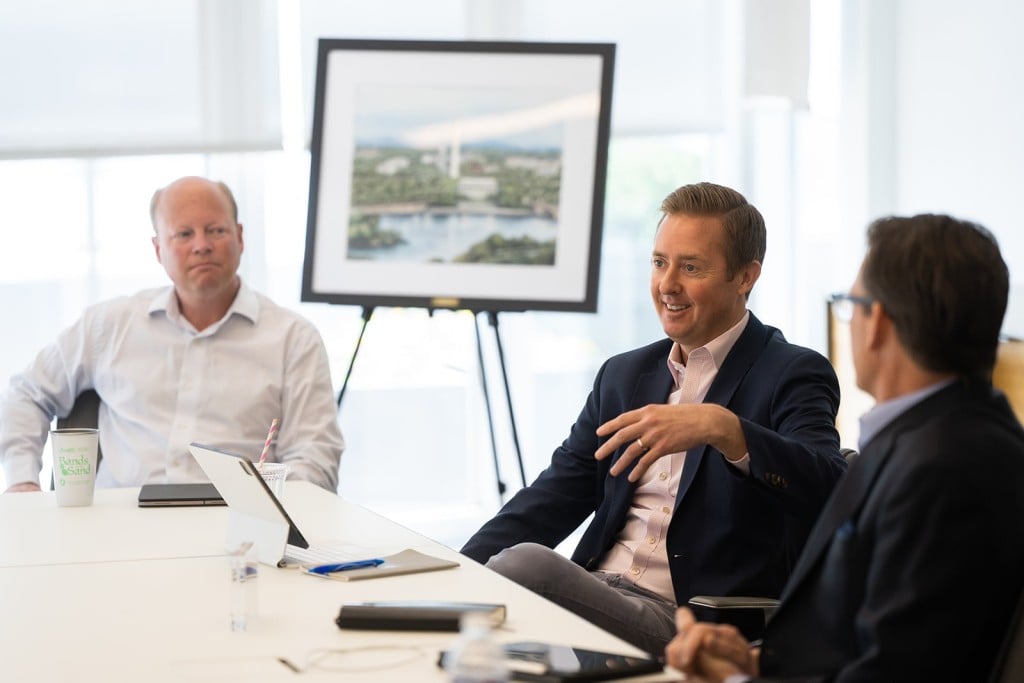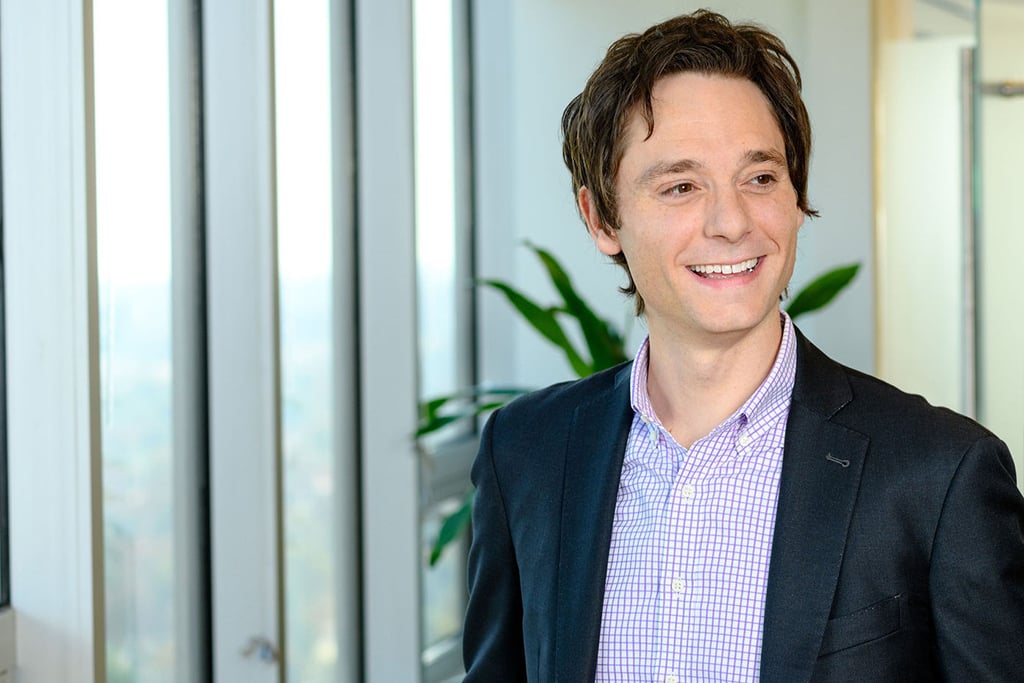Kevin Murphy (host) (00:01):
Today we’re diving into one of Latin America’s most disruptive fintech companies and a true pioneer in the digital banking world.
If you’re familiar with the term “neobank,” chances are you’re familiar with Nubank, and perhaps you know about its mission to democratize financial services in Brazil and beyond. If you’re not, you will be by the end of this podcast.
Founded in 2013, Nubank set out to tackle the bureaucratic, expensive, and often exclusionary banking system that left many people underserved. But it didn’t stop at Brazil. Nubank has since expanded across Latin America, building a customer base of over 100 million and securing one of the largest IPOs [initial public offerings] in the fintech space.
So how did Nubank, this upstart with a bold vision, break through the walls of entrenched banks, win the trust of millions, and emerge as one of the most valuable digital banks in the world? Well, welcome to What Matters Most, in which we explore the businesses propelling global innovation and changing the way we live and work today and into the future.
My name is Kevin Murphy, and with me to answer these questions and more is Sands Capital Senior Research Analyst Eduardo Leal, CFA.
Eduardo, people may or may not be familiar with what a neobank is or fintech more generally. Help us understand what digital finance/digital banking is, what neobanks are. And then we can dive into the details of what makes Brazil and Latin America a unique market for the growth of these businesses.
Eduardo Leal (Sands Capital Senior Research Analyst) (01:25):
Thanks, Kevin. So just to organize our thoughts, when we talk about neobanks or digital banks or even fintechs, in general, we are talking about a different way of doing something that has been done for several years, if not centuries, right? All the features of traditional banks still exist, but perhaps the difference is that the way you distribute and relate with customers does not happen in the physical world. You do not have physical branches. You do not have an army of hundreds of thousands of people spread throughout the country. Instead, you have a concentrated tech platform that will allow you to very efficiently serve clients.
Kevin Murphy (host) (02:10):
Before we dive into the details of Nubank specifically, tell us why you think Latin America is a good market for fintech. Not just Nubank but others have done quite well there.
Eduardo Leal (Sands Capital Senior Research Analyst) (02:23):
We can make some generalizations here about Latin America. Latin America is a huge space with over 700 million people. Yet, there are different countries. Each one has its own history and journey, but we definitely see some patterns. Often, what you see—be it in Brazil, Mexico, Colombia, Peru, or Chile—you might see a banking industry that is concentrated into three, four, or five oligopolistic banks. Those banks might control 80% to 90% of deposits or assets. It’s not uncommon to see them offering unexciting products with an unexciting experience to customers.
Curiously, this very concentrated space with those unexciting products often tends to be very profitable. That creates a very interesting ecosystem if you want to disrupt it. So what Nubank did 11 years ago was to select one of those very profitable industries, then cherry-pick a few of the most profitable products and explore that in a very cost-efficient way that would make it even more profitable than for those already very profitable suppliers or banks in those areas. That’s what makes this space so promising for capable fintechs eager to disrupt.
Kevin Murphy (host) (04:01):
Thinking of Nubank specifically, the founder, if I’m not mistaken, is a Stanford grad. So it falls into that category of Stanford entrepreneurs. But rather than finding an inefficient market with little competition and exploiting that, it seems to me he dove right into a very efficient market with basically an oligopolistic character to it.
Can you flesh that out a little bit? Give us some idea of David Vélez’s vision and how he got started in this industry.
Eduardo Leal (Sands Capital Senior Research Analyst) (04:32):
Yes. David Vélez, founder of Nubank, is Colombian and spent several years of his career in the U.S. At some point, he moved to São Paulo—and there is this interesting anecdote that he shares.
When he moved to São Paulo, he tried to open a bank account. He went to this physical branch and had to go through a metal detector. The typical branch in Brazil has bulletproof glass and security guards with weapons. Then, he had to wait in line for hours to see a manager. After a lot of back and forth, he left the bank without his checking account.
Anecdotes like this are not uncommon. We heard similar stories from multiple people. David saw in that an opportunity for disruption. And what is interesting is that, as you said, the ecosystem is very concentrated in very powerful, entrenched banks. If you look back in history, you see several cases of banks that tried to expand and failed, but they [Nubank] did several things in a very clever way.
(05:50):
Nubank was basically a startup in 2013 when it was founded. It didn’t have money. How can you build a credit business if you don’t have access to deposits? If you don’t have the money? VC [venture capital] money is very expensive.
Well, there is a very peculiar thing in Brazil, and we can talk about the history of that, but basically the credit card business in Brazil has positive working capital, which is curious. Basically, you receive the money before you have to pay, so your cardholders will give you the money before you have to send the money to the merchants where the transactions happen. That allowed Nubank to create this product digitally and in a very capital-efficient way. Then, years later, in 2016 or 2017, there was a regulatory change or innovation that, for the first time, allowed companies to onboard checking account customers digitally.
(06:51):
For Nubank, that meant that they could now receive deposits without having to build branches or any kind of physical infrastructure. That was a big milestone in their journey. The moment you start receiving a checking account, I can give you a debit card. Then, I can start monitoring your behavior in a very cost-efficient way that legacy banks just cannot match. And, over time, I can observe your behavior and qualify you as creditworthy. And that’s what Nubank did since 2017, and it expanded from a mono-line type of business to a full bank suite with several products.
Kevin Murphy (host) (07:32):
Can you walk us through then in more detail the value of the customer to Nubank? How did they move that customer along the value chain to become a more valuable customer over time?
Eduardo Leal (Sands Capital Senior Research Analyst) (07:43):
Yes, so let’s talk about, for illustrative purposes, how this journey might start. Let’s say I don’t have a credit history. I don’t have a bank account. I don’t have a lot of money, so the traditional bank won’t care about me.
But for Nubank, if I have a smartphone, I can open a checking account and receive a debit card. That means that the bank is not facing any type of credit risk. But with this debit card, they can start making purchases and be included in the financial system. Let’s say after six months, the bank notices—they can track money inflow, money outflow—and there is some pattern there. They will extend me a credit card for the first time in my life. Let’s say $10—it could be as low as that, right? Well, that’s enough for me to pay my Netflix subscription. And six months will go by. I’ve shown that I can behave well as a consumer in this customer-bank relationship, so then they will extend my credit limit. They will bring it up from $10 to $50. And let’s say I keep in good grace with the bank. Eventually, they will allow me to apply for another product, a personal loan, and then this relationship will strengthen further. Eventually, I’ll have access to more and more products. And you see that very regularly for each cohort in the past seven years,
Kevin Murphy (host) (09:15):
And I know they’ve added beyond just personal, starting with branded credit cards, as you said, and then recently adding insurance and asset management. Are those important parts of the business, or is it just kind of filling out the overall financial product suite for their clients?
Eduardo Leal (Sands Capital Senior Research Analyst) (09:32):
Yes, so back in 2013, Nubank started with just a credit card. In 2017, they launched a checking account, and then they started receiving deposits. With that money, it was easier for them to offer new credit products. One of those was personal loans. More recently, they expanded into payroll loans. The idea is to offer a lot of the things that you need. What Nubank’s trying to achieve is to secure the primary banking relationship with you. That doesn’t mean that every customer will have demand for an asset management product or insurance, but several will, and Nubank wants to be there to offer what they need.
Kevin Murphy (host) (10:20):
You’re listening to Season Three of What Matters Most from Sands Capital. Subscribe to our upcoming episodes to hear more about the companies that we believe will grow into tomorrow’s leaders. You can also access our latest thinking at Sandscapital.com.
Kevin Murphy (host) (10:35):
Maybe give us a little comparison between Nubank and the traditional brick-and-mortar banks—things like efficiency ratio and net interest margin. How do they compare to standard banking metrics?
Eduardo Leal (Sands Capital Senior Research Analyst) (10:48):
On the revenue side, it’s not that Nubank is offering products that are necessarily cheaper. But I think the biggest differentiating factor comes in the cost side of the equation. If you think about a bank, any bank, there are four big cost buckets, right? You’ll spend some money to acquire the customer. Nubank has this very effective customer acquisition strategy that is mostly word of mouth. They’re not spending big checks, marketing checks. Remember, it was just a startup. They didn’t have that money, and it’s still like this. So the cost to acquire is very low. Then you have the cost to serve. Well, if you compare Nubank to the traditional bank in Brazil, Nubank has zero branches. Think about that. In prime locations in São Paulo or Rio, you have to pay rent, and you have to hire a lot of people.
(11:47):
You have security guards. It’s expensive to maintain. Plus, those banks have 80,000 employees, a hundred thousand employees. By the way, half of those are unionized.
Nubank has 8,000 employees and, in terms of customers, is even larger than all those other banks. So, it’s a very effective way to serve your customers.
The funding piece is also very important, right? Because if you want to offer credit, you have to raise this money, and Nubank was very successful. It was costly at first, but now they have started to flex their muscles and start reducing the amount of money they pay on deposits.
The last bucket is the cost of risk—basically, credit losses. None of that will work if you’re not a prudent underwriter. One could argue that Nubank has an edge because it has so much data and has this data science mentality that they can work better with the data and have a better underwriting policy.
I’m cautious about this view, even though data may suggest this is the case. I’m very respectful of the large banks in Brazil or Mexico that have endured and survived several cycles. So I think Nubank is very prudent and conservative when it comes to underwriting. I don’t think necessarily they are significantly better, and that’s why they have the right to win. But on the other three cost elements, I think things are definitely in their favor.
Kevin Murphy (host) (13:31):
I’m thinking back to the question about net interest margins. What do delinquencies look like? I assume, like U.S. banks, regulated banks, they need to reserve for bad loans. How does Nubank think about those reserves?
Eduardo Leal (Sands Capital Senior Research Analyst) (13:45):
Well, Nubank has a good problem in that they are well overcapitalized. It’s a good problem to have because you need that capital in order to grow, and they’re certainly growing. When it comes to comparing net interest margins to the other legacy banks, it’s difficult to make an apples-to-apples comparison. But, if you take Nubank, there’s the Brazilian operation, which is by far the largest as of now, and there are emerging geographies—Mexico, Colombia—they’re newer, they’re earlier on the journey. There is still loss-making. Nubank in Brazil is running at an ROE (return on equity) that will surpass 40%. If you compare that to major banks in that country, they’ll be around 20%. But even if you put together Mexico and Colombia, which are, as of now, loss-making, still Nubank is generating a consolidated ROE of 30%, which is quite impressive. For a bank at that scale, I think Nubank is among the fastest-growing banks in the world and among the most profitable banks on the planet.
Kevin Murphy (host) (14:58):
Actually, that leads me to the next question. We’ve been talking about Nubank versus traditional banks. How about Nubank versus other neobanks?
Eduardo Leal (Sands Capital Senior Research Analyst) (15:08):
Oh, that’s a very good question. Certainly, that idea of serving people in a more efficient way enabled by technology is not new. The bank was not even the first one to do that. We’ve seen that in other regions. We have experience following this type of story across the globe. The reality is that building a digital bank today is not that difficult. You have a lot of the services that you need, the infrastructure that you’ll need. But what is very hard to do is to run a digital bank profitably. You have to acquire customers in an efficient way. You have to be cautious with your funding, and you have to be very capable on the underwriting part of the story. I think Nubank excelled in all those key things. It also differed from other fintechs. Nubank has this customer obsession and that helped them build something that is often overlooked but also very important, which is the brand. Curiously, Nubank is one of the most loved brands among Brazilian consumers, and the importance of this is that it translates into better unit economics because you have more primary banking relationships, which means that often you have lower credit losses and will be more profitable. So for Nubank, it was not about being the first. It was about being credit-first. They have that at their core. But being the best—I think that’s what differentiated them from the rest.
Kevin Murphy (host) (16:53):
Can you give us a little bit of the history of Sands Capital’s experience with Nubank? Where did it start? When did the research start? How was it done, and how did it make its way into portfolios today?
Eduardo Leal (Sands Capital Senior Research Analyst) (17:06):
Yes, sure, Kevin. It’s interesting because our relationship at Sands Capital and Nubank started before the company went public. One of our private strategies invested in 2021, co-led the Series F funding, and worked closely with the management team. Eventually, when the company became public, I wouldn’t say that we necessarily knew more about the bank than anyone else, but certainly we were more used to their strategy. We were more familiar with the people, the great management team that is leading the strategy that Nubank has. That certainly helped us to better assess what they’re trying to do.
Besides Nubank, our team has also done work in the banking space for several years or decades across multiple geographies. So, the banking space is not new at all. We even invested in the past in a digital bank in Russia that, in some ways, used to be very similar to what Nubank is. They were trying to distribute products in a better way, with a much better experience and in a very cost-efficient manner to customers that had far worse alternatives. That bank doesn’t exist anymore the way it used to, but certainly our institutional knowledge of the banking space and the digital banking space has been built for several years.
Kevin Murphy (host) (18:39):
Talk to us a little bit about the risks that you see in these kinds of businesses and then, specifically, the risks that Nubank might have.
Eduardo Leal (Sands Capital Senior Research Analyst) (18:46):
Well, first of all, giving credit is a risky business, right? You are leveraged by definition. It tends to be cyclical. I think the most important thing is to be a prudent underwriter, and I think it comes back to the management team. We believe Nubank’s team has shown that they are not trying to grow just for the sake of growing in a reckless manner. This is a cyclical business naturally, and we do not think that growth is linear. You might have cycles of faster growth, slower growth. What you want is a group of executives who are well aligned with you and have this very prudent and conservative mindset when it comes to credit underwriting. So that’s one element, I would say.
The second element comes to regulation. The countries that Nubank is present in today—Brazil, Mexico, and Colombia—they have powerful regulators.
(19:52):
It’s a fluid landscape. Rules can be changed or tilted, and that could have adverse impacts on the banks. Whenever a new regulation comes and it’s negative for the banks, it tends to be worse for other banks versus Nubank. We don’t like to see that happening, for sure. But often, when it happens, it can hurt other banks more, which means that they would be the first ones to be scaling down some operations and that might even give Nubank an opportunity to grow faster. But it’s certainly something that we are not expecting to see in a meaningful way. It’s just that they are perhaps less exposed to that factor.
Kevin Murphy (host) (20:38):
This is Season Three of Sands Capital’s What Matters Most. Subscribe where you get your podcasts to get notified of new episodes, and join us as we go deep into the companies we believe will shape our future.
Kevin Murphy (host) (20:52):
On the subject of geographical expansion, how far north will they go? Do you think you’d ever see a presence in the United States?
Eduardo Leal (Sands Capital Senior Research Analyst) (21:01):
The way we see Nubank today and the way we inform our forecast, it basically assumes that the bank will be present in those three countries and those three countries only. It also assumes that they will basically have those three flagship products that they have today, and they will scale those. There are a lot of opportunities there. We, however, do not assume anything beyond that. And we would perhaps miss the point if we do not consider that things will happen beyond those products, beyond those regions, right?
The U.S. is certainly a possibility, even though we do not factor in any of that. If they succeed in Mexico—and we have reasons to believe they have a very good chance to do—that is certainly a demographic that would translate well into the U.S. They would have an opportunity to cross-sell to clients there. Once, they shared with us that 10 million people, Latinos in the U.S., represent the entire 100 million-person ecosystem in Brazil. That’s how meaningful it could be. It could really move the needle.
Kevin Murphy (host) (22:16):
What does the company look like five to 10 years from now? Just bigger penetration of their current customer base’s wallet, banking share? Or is there a new product in development that we should be thinking about?
Eduardo Leal (Sands Capital Senior Research Analyst) (22:29):
If we think about a long-term horizon, it’s very likely that they will have several new things. It is a kind of international company. They have people all over the world, even here in the U.S. They have a lot of people who used to work for Capital One. But there are several other countries where you see the same setup of unsatisfied customers being served by oligopolistic banks charging a lot to make a lot of money on that—South Africa, there are places in Southeast Asia. There could be new things. It’s hard to say when or where, but we do not believe the management team is just looking for the three places that they are today. The same could be said about the products. They have three products today—some of them are super early—so they have a lot of opportunities there. They probably scale meaningfully in the next three to five years, but beyond that, certainly, they have more things to do, certainly in the banking space, but they could find clever ways to explore new markets. Recently, they announced a partnership with a mobile carrier in Brazil, and they will offer cell phone plans for the Brazilian population. That’s apparently a very clever way to cross-sell and increase engagement with your customer base—and, by the way, another type of product that customers tend to be very unsatisfied with.
Kevin Murphy (host) (23:59):
Eduardo, thanks. That’s fascinating. I think, as I said at the introduction, if you know something about neobanks, you’ll be very impressed with Nubank. If you don’t know anything about neobanks or digital banks, hopefully, you learned a lot in this conversation.
Eduardo Leal (Sands Capital Senior Research Analyst) (24:13):
Thanks, Kevin.
Kevin Murphy (host) (24:15):
Thanks for listening to What Matters Most. We look for companies that prioritize innovation and that have the competitive advantage and leadership it takes to sustain strong growth over time. We dive deep, get to know the companies intimately, and invest only when we have strong conviction. Listen to future episodes and learn about other great growth companies our research has unearthed and the insights that give us the confidence to invest in them for the long term.
Disclosures: (24:41):
The featured podcast portfolio companies represent a subset of Sands Capital holdings that illustrate the types of businesses in which we typically invest. Companies are selected on a rotating basis to highlight different sectors and geographies. The views and opinions expressed herein are those of individuals and may differ from the views and opinions expressed by Sands Capital. Views are current as of the recording date, are subject to change, and are not intended as a forecast, a guarantee of future results, investment recommendations, or an offer to buy or sell any securities. This podcast may contain forward-looking statements, which are subject to uncertainty and contingencies outside of Sands Capital’s control. Listeners should not place undue reliance upon these forward-looking statements. There is no guarantee that Sands Capital will meet its stated goals. A company’s fundamentals or earnings growth is no guarantee that its share price will increase. The specific securities identified and described do not represent all of the securities purchased, sold, or recommended for advisory clients, and there is no assurance that any securities discussed will remain in the portfolio or that securities sold have not been repurchased. You should not assume that any investment is or will be profitable. A full list of public portfolio holdings, including their purchase dates, is available on our website at www.sandscapital.com/sinceinception.
